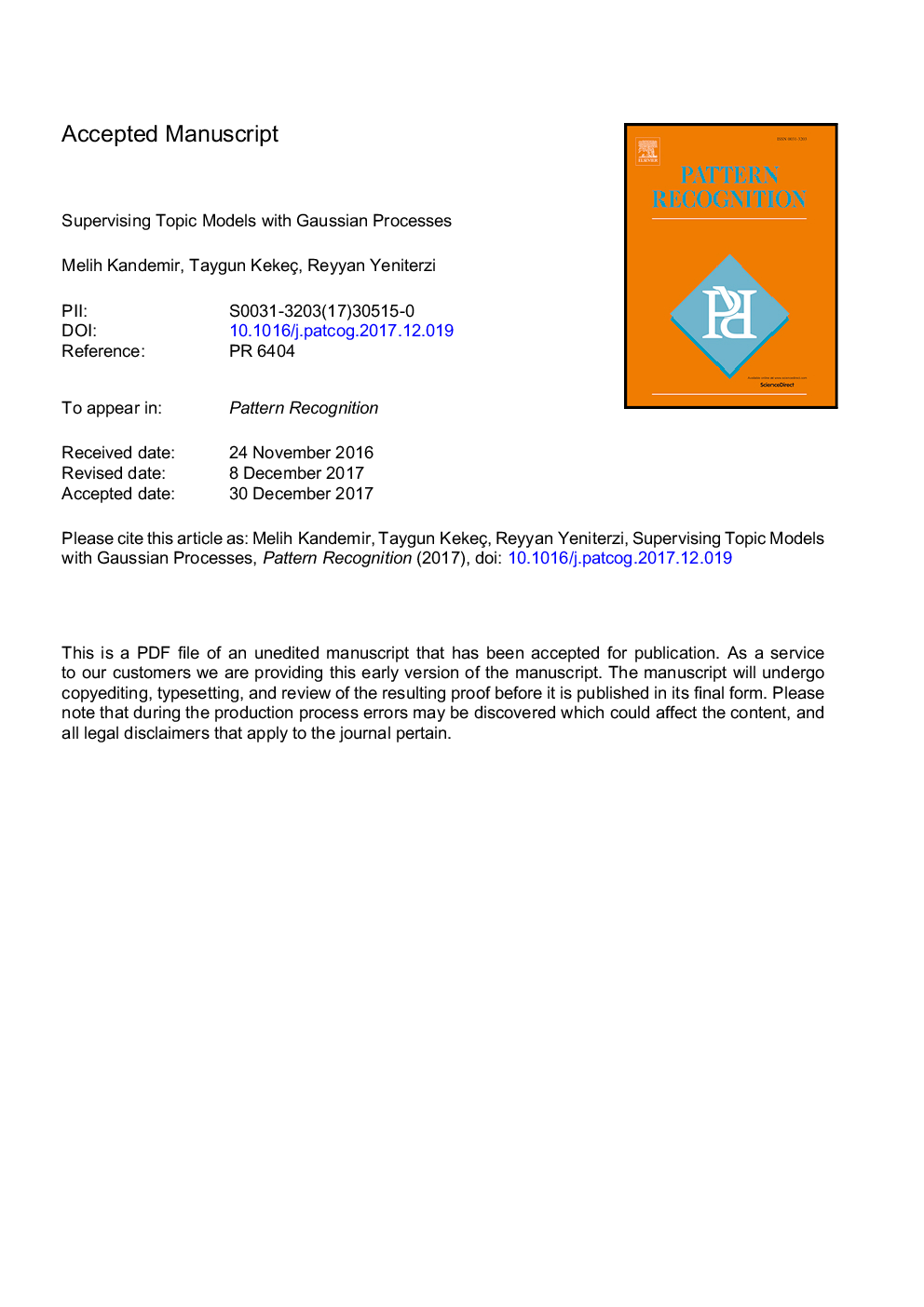| کد مقاله | کد نشریه | سال انتشار | مقاله انگلیسی | نسخه تمام متن |
|---|---|---|---|---|
| 6939295 | 1449970 | 2018 | 36 صفحه PDF | دانلود رایگان |
عنوان انگلیسی مقاله ISI
Supervising topic models with Gaussian processes
ترجمه فارسی عنوان
نظارت بر مدل های موضوعی با فرآیندهای گاوسی
دانلود مقاله + سفارش ترجمه
دانلود مقاله ISI انگلیسی
رایگان برای ایرانیان
کلمات کلیدی
تخصیص صندوق قرض الحسنه، استنتاج غیر پارامتری بیزی، فرآیندهای گاوسی، استنتاج متغیر نظارت بر مدل های موضوعی،
موضوعات مرتبط
مهندسی و علوم پایه
مهندسی کامپیوتر
چشم انداز کامپیوتر و تشخیص الگو
چکیده انگلیسی
Topic modeling is a powerful approach for modeling data represented as high-dimensional histograms. While the high dimensionality of such input data is extremely beneficial in unsupervised applications including language modeling and text data exploration, it introduces difficulties in cases where class information is available to boost up prediction performance. Feeding such input directly to a classifier suffers from the curse of dimensionality. Performing dimensionality reduction and classification disjointly, on the other hand, cannot enjoy optimal performance due to information loss in the gap between these two steps unaware of each other. Existing supervised topic models introduced as a remedy to such scenarios have thus far incorporated only linear classifiers in order to keep inference tractable, causing a dramatical sacrifice from expressive power. In this paper, we propose the first Bayesian construction to perform topic modeling and non-linear classification jointly. We use the well-known Latent Dirichlet Allocation (LDA) for topic modeling and sparse Gaussian processes for non-linear classification. We combine these two components by a latent variable encoding the empirical topic distribution of each document in the corpus. We achieve a novel variational inference scheme by adapting ideas from the newly emerging deep Gaussian processes into the realm of topic modeling. We demonstrate that our model outperforms other existing approaches such as: (i) disjoint LDA and non-linear classification, (ii) joint LDA and linear classification, (iii) joint non-LDA linear subspace modeling and linear classification, and (iv) non-linear classification without topic modeling, in three benchmark data sets from two real-world applications: text categorization and image tagging.
ناشر
Database: Elsevier - ScienceDirect (ساینس دایرکت)
Journal: Pattern Recognition - Volume 77, May 2018, Pages 226-236
Journal: Pattern Recognition - Volume 77, May 2018, Pages 226-236
نویسندگان
Melih Kandemir, Taygun Kekeç, Reyyan Yeniterzi,
